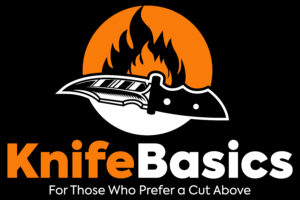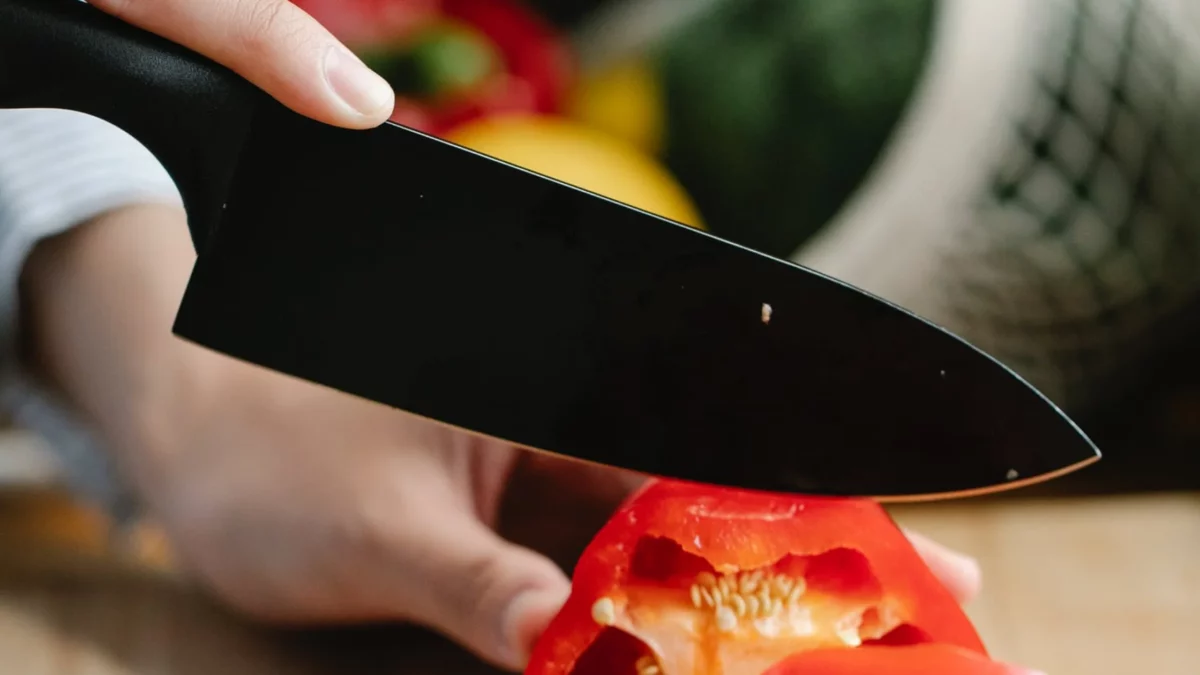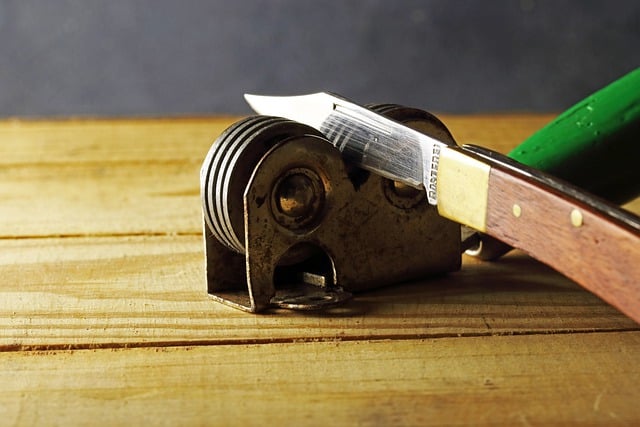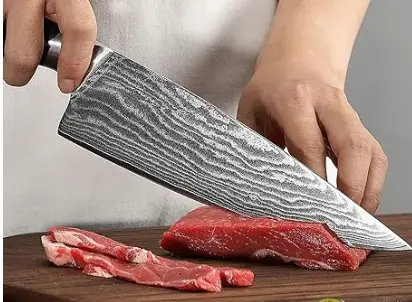What are ceramic knives?
As the name implies, ceramic knife is made from tough and durable ceramic, primarily zirconium dioxide, also known as zirconia. They are available in different brands and are affordable compared to knives made from steel. Also, they come in a variety of colors.
If you have been considering getting a new ceramic knife set, you are in the right place. With so much information about these knives, it might be hard to make the right choice.
This article will look at the benefits, drawbacks, and related queries of ceramic knives to help you make an informed decision.
Pros of Ceramic Knives
- Super Sharp
Ceramic knives are super sharp, and they stay sharp for long. This is because ceramic is a very hard material, next after Diamond. Therefore, if you are out for a knife that holds an edge for the longest time, you will never go wrong with a ceramic knife.
- No rusting
Ceramic knives do not rust because they are chemically inert. This makes it easy to maintain and store them as they will not react with the atmosphere or most corrosive compounds.
Unlike metal knives, you can comfortably use them in corrosive and humid environments with minimal care.
- Lightweight
Another benefit of ceramic knives is that they are very light and, therefore, easy to handle. You will never strain your arm or your shoulder when using ceramic knives.
While this is an advantage to many people, some complain that holding a ceramic knife feels like you are not holding anything and hence prefer steel knives that give a sturdy feel when cutting.
- Do not transfer Odors.
Ceramic knives do not transfer odors when used to chop or cut different ingredients at the same time. This is because they have fewer pores than their metal counterparts.
For example, if you cut spices and want to switch to fruits, your ceramic will not transfer the spice odors to your fruits. All you are asked is to rinse and dry the knife.
No one wants to transfer smell from one ingredient to the other. Therefore, if you are the type that regularly uses spices in the kitchen, ceramic is the way to go.
- They are cleaner to use
As mentioned above, ceramic knives have fewer pores. Other than not absorbing odors, it also means less dirt and grime through the pores. Cleaning ceramic knives only require warm water and a quick scrub.
Cons of ceramic knives
- Brittle
Due to its high hardness, ceramic is very brittle. This means that ceramic knives break and chip easily. Because of this feature, these knives cannot be used to cut bones, frozen meat, or anything that is not easy to slice.
Since they cannot do the hard work, ceramic knives cannot be used alone in the kitchen but as accompaniments.
- They are difficult to sharpen
Ceramic knives will hold a razor-sharp edge for the longest time, and you will enjoy using them until the day you want to sharpen them. Because they are very hard, sharpening them is not easy, and very few people know how to sharpen them.
Most manufacturers recommend that you take the knives to them for free sharpening.
- You cannot wash them in the dishwasher
Ceramic knives are dishwasher safe, but experts advise against washing them in the dishwasher because they are very brittle.
The violet motion of the water and hitting from other cutlery could easily break or chip them. Secondly, the hot water can compromise their edge.
Common Ceramic Knives Queries
Should I consider ceramic over a metal knife?
Do ceramic knives break easily?
Can a ceramic knife be sharpened?
Sharpening a Ceramic blade is hard as they exhibit a Mohs hardness of 8. They achieve this incredible hardness due to the presence of Zirconia in their composition.
Zirconia Mohs hardness of 8 can only be bettered by diamond which has a Mohs hardness of 10 hence the need for a diamond sharpening tool.
It is worth noting that some ceramic knives are only ceramic coated and do not contain Zirconia. For these kinds of knives, it is much easier to sharpen them with normal sharpening tools.
Can ceramic knives be detected by metal detectors?
A magnetometer is a device used to mostly detect the presence of metals. It does this by measuring the strength and direction of magnetic fields in their proximity.
Are ceramic knives magnetic?
Before picking up a ceramic knife, you should therefore note that it won’t stick on your magnetic knife holder and it would be better to pick up a woodblock for storing it.
Are all ceramic knives the same?
Can you cut meat with ceramic knives?
A hard hit on a bone can instantly break a ceramic knife blade. It is much advisable to pick up a stainless steel knife for cutting meat for a worry-free experience.
Are ceramic knives better than steel ?
This enables the use of ceramic knives in highly corrosive environments without the concern of contamination.
Secondly, most ceramic blades come with a very sharp edge from the factory. They can maintain the sharp edge longer than most knife steels even after repeated use.
Are ceramic knives any good?
I don’t think however that you can do away with steel knives completely as the cons of ceramic knives like chipping and breaking and the need for special sharpening may leave you at a disadvantage.
Ceramic knife blades are not all-purpose hence you can only use them together with steel knives to improve your experience.



